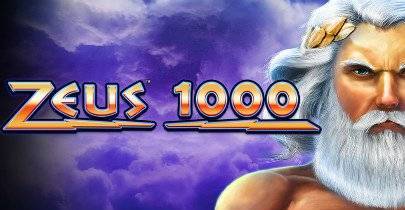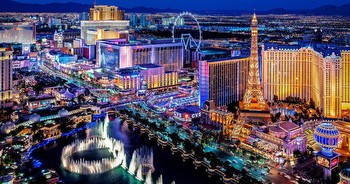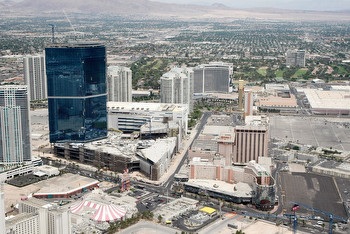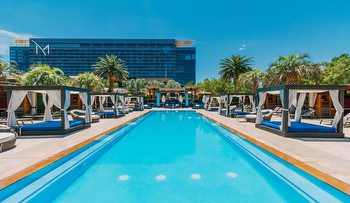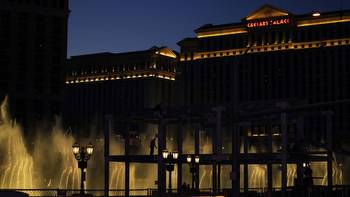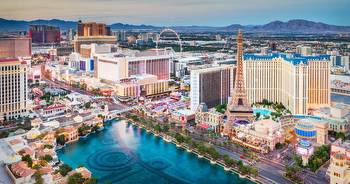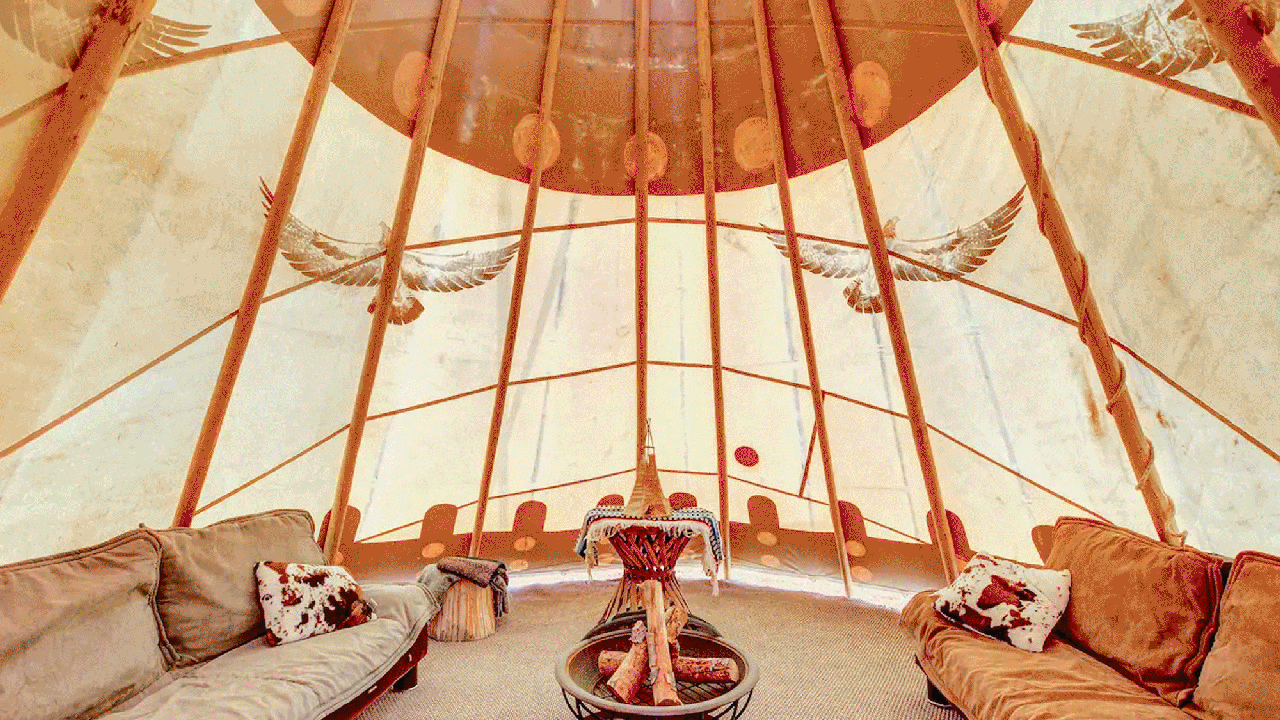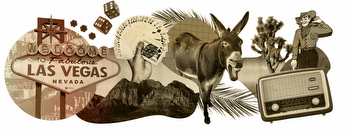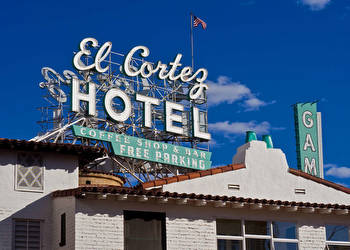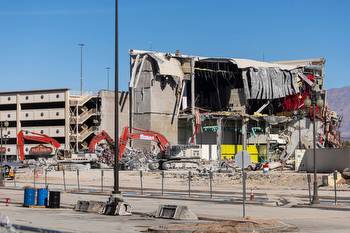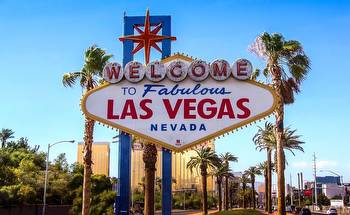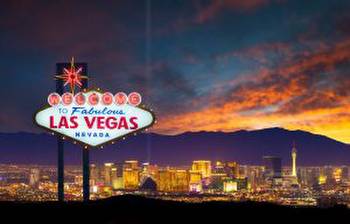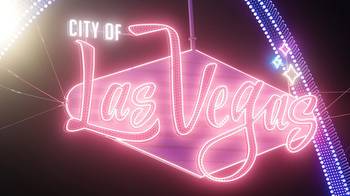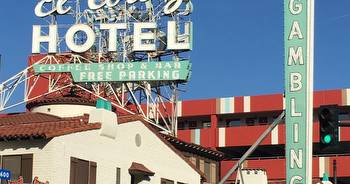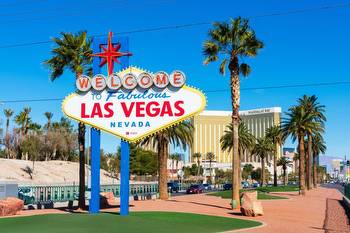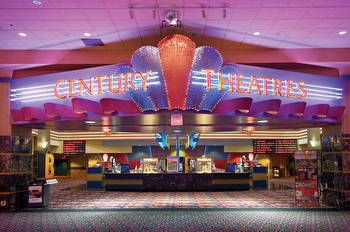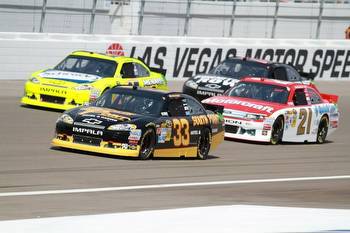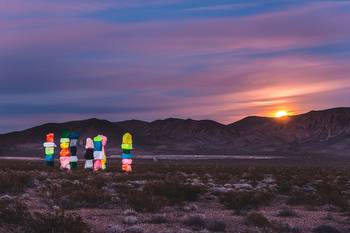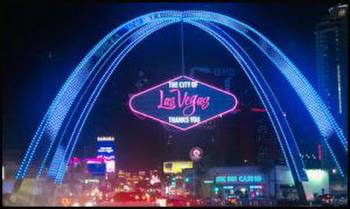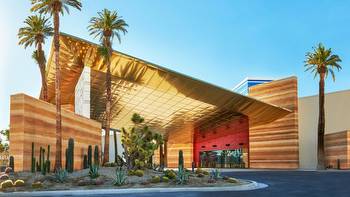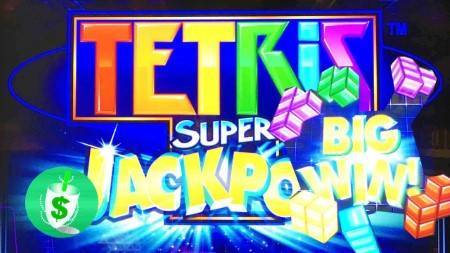I’m not a gambling addict, but I’ve been to Vegas 44 times. Here’s why
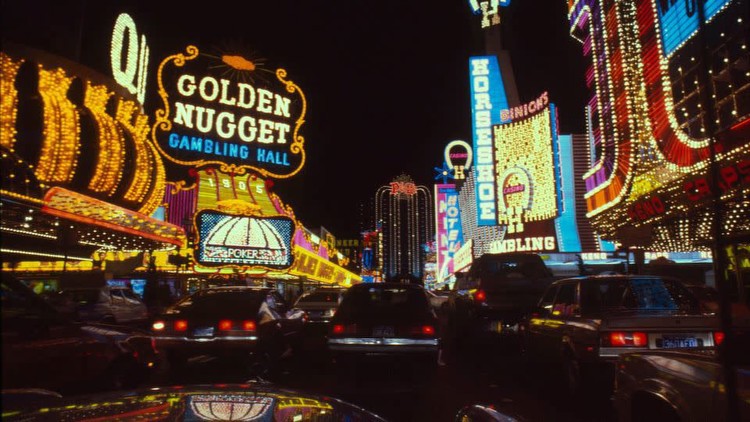
“Vegas: The Story of Sin City” showcases the heart and history of one of America’s most beloved and notorious cities in four immersive episodes. Tune in for the premiere on Sunday, February 25 at 10 p.m. ET/PT on CNN.
The first time I went to Las Vegas was in 1985, on a cross-country road trip with my stepbrother. I was in my 20s and he was a college freshman on spring break. We drove, wide-eyed, down the Strip in my crappy little Honda and gawked at all the neon before finding a room at a Motel 6. After dinner I snuck him into a casino – I think it was the Tropicana – and taught him how to play blackjack.
He won $50. I lost $100.
It was not an auspicious Vegas debut. But there was something about the city that fascinated me, some siren song that pulled me back again and again.
I think it’s this: For better or worse, Las Vegas offers the promise of transformation. With enough luck, you can show up in a beater and drive away in a Mercedes, upgrade from your shabby motel room to a suite at the Encore. You also can ingest way too much of something, get a face tattoo, blow your nest egg and get married in a wedding chapel at 4 in the morning to someone you barely know. It’s all on the table.
Over the decades I have been to Las Vegas an embarrassing number of times – 44, by my count. If that seems alarming, I get it. It kind of alarms me, too. Believe it or not, I don’t have a gambling problem — I just keep finding reasons to visit. I’ve been there in many roles: as a basketball fan, as a working journalist, as a groomsman, as a soon-to-be-wed bachelor and as just another tourist wearing an ugly shirt and carrying around a plastic cup filled with cheap liquor. I have the stories to prove it.
I’ve also watched Vegas reinvent itself over and over, from a gambling mecca built by the Mob to a Disneyesque playground to a luxury getaway destination to an entertainment capital. Underneath it all, though, it’s remained stubbornly the same. The hotels and attractions come and go like sand dunes, but the mercenary heart of the city never changes.
Whatever you think of Vegas, the city won’t judge you. Dress like a Carnival queen. Order a Viking Tiki Negroni. Order another. Hit on 17. Go on with your bad self. As long as you spend money and don’t hurt anybody, Vegas doesn’t care.
The drive across the desert and the $1.99 steak dinner
I’m not the only one who has felt Vegas’ pull. A year or two after that initial visit, I became buddies with a fellow reporter at a newspaper in Southern California. Stu was boyish and exuberant, and he loved spontaneous road trips. On Friday nights we’d be chatting over a drink after a long work week when he’d get a wicked gleam in his eye, raise an eyebrow, and say, “Vegas?”
We’d climb into his truck with nothing more than the clothes we were wearing and make the four-hour drive across the desert, fueled by adrenaline and the prospect of riches and excitement. Vegas, baby! (If you’ve seen “Swingers,” you know what I’m talking about.) There’s nothing quite like crossing the dark and forbidding vastness of the Mojave Desert, cresting a hill and seeing the orange glimmer of Vegas ahead on the horizon, beckoning like an exotic oasis.
I didn’t realize it at the time, but Las Vegas in the ‘80s was in a slump. The Strip was full of aging hotels offering a mix of faded Rat Pack glamor and ‘70s kitsch. The Aladdin. The Sands. The Dunes. The Sahara. Desert themes were big.
But the city also was cheaper then, which suited Stu and me – two broke newspaper reporters – just fine. We’d hit the $2 blackjack tables for a few hours and then go to the Horseshoe downtown for their $1.99 steak dinner. The steak was like chewing a saddlebag, but it came with a baked potato and a vegetable, and to an indiscriminate young man at 3 a.m. it all tasted pretty good.
I don’t think we ever booked a room — we’d just gamble all night and drive back to LA the next day. And we rarely won anything. But it felt like a little adventure. One bleary morning we had to visit one of those sketchy check-cashing places off the Strip just to have enough gas money to get home.
Bachelor parties, Elvis and Julia Roberts
Over the next decade Vegas got fancier and splashier. As casinos opened across the US and Nevada no longer had a monopoly on gambling, the city broadened its allure with high-end shopping, celebrity-chef restaurants, spas, thrill rides and family-friendly entertainment like Cirque du Soleil shows — all mixed together in a new generation of sprawling megaresorts. The first was the Mirage with its famous erupting volcano, proving that free sidewalk entertainment could lure in tourists off the Strip. It was soon followed by a flurry of others.
By the mid-‘90s I was writing for a newspaper in Salt Lake City, where I talked my editors into letting me cover the big happenings in Vegas. I was there for the 1998 opening of the Bellagio, then at $1.6 billion the most expensive hotel ever built. It felt a long way from the Motel 6. I gazed in awe as Muhammad Ali shuffled through the lobby with a sly smile on his face, parting a sea of people like he was Moses. I listened as casino mogul Steve Wynn led reporters on a personal tour of the Bellagio’s now-famed dancing fountains, effusively praising his resort as the most beautiful in the world.
Less than two years later, he sold it, along with his company, to MGM Grand. In Vegas, money doesn’t just talk — it hollers.
Around this time my buddies started getting married, and they went to Vegas for their bachelor parties. Mine was there, too. I’ll spare you the tawdry details from these trips – they’re a little blurry anyway – except to say that if you dress the groom up as ‘70s Elvis, with a rhinestone suit and a pompadour wig, everyone will treat him like Vegas royalty and you will laugh very hard — especially if he gets into character.
By now I was older and a little wiser, and Vegas didn’t hold quite the same allure. I knew the city was not going to make me rich overnight: I don’t play the slots, and my blackjack bets are pretty modest. But still I kept coming. There’s something energizing about Vegas’ carnival atmosphere, its ridiculous architecture, its unparalleled people watching, its refusal to take itself too seriously.
Sure, the gondolier crying “Bion giorno!” at the Venetian is really Chad from Provo, but it doesn’t matter. For me, Vegas’ over-the-top tackiness is part of its strange appeal. Sure, it’s fake. So what?
As the years went on I returned for trade shows, guys’ trips, family birthdays, basketball tournaments. I saw a crowd of people gawking in the Mandalay Bay’s casino and turned to see Julia Roberts, standing awkwardly beside then-boyfriend Benjamin Bratt as he played craps. I saw live shows by the Rolling Stones, Bob Dylan and Blue Man Group. I got thrown off a mechanical bull. I won money. More often, I lost money. Along with my Utah buddies, I watched our Utes lose year after year in the Pac-12 Tournament.
And I had my share of misadventures. One year I had an unnerving, “Hangover”-like experience where I woke up in my hotel room with bruises on my arms and no memory of what I had done the night before. When I asked my friends what had happened, they started laughing.
The next year my buddies and I were playing an informal basketball game against five other dudes on an outdoor court at Caesar’s Palace when the hypercompetitive guy I was guarding suddenly went nuclear, charged me and yelled, “I’ll put you in a box.” We narrowly avoided a fight and the game ended, but in our Vegas lore the phrase endures.
Then came March 11, 2020. My buddies and I had just arrived in Vegas when the spike in coronavirus cases reached a tipping point. Within 24 hours, the NBA and NHL suspended their seasons and all the college basketball tournaments were canceled. Even in Vegas, which thrives on blocking out the realities of the outside world, there was a surreal disconnect and a palpable sense of unease. Nobody seemed to know what to do. We cut our trip short and went home. The Strip shut down for two and half months.
An exhilarating — and exhausting — night at Sphere
Of course, the city has since come roaring back. In recent years it’s added another identity to its all-you-can-eat buffet: sports capital. The NFL, NHL and WNBA play there now, Formula 1 held a race on the Strip last fall and the city just hosted the Super Bowl. You might have heard Taylor Swift was there.
I understand why some people hate Las Vegas. It can wear you out. There’s the crush of tourists, the relentless huckstering, the incessant jangling of slot machines, the endless march from your room at the end of the hall on the 34th floor of the North Tower down through the maze-like casino to the street. It looks exciting at night but not so great in the morning. It’s hard not to spend more than three days there without getting an overwhelming urge to flee into the nearest wilderness and hug a tree.
I also sometimes wonder if I’m getting too old for Vegas. I’m a middle-aged man. I can’t stay up late and bounce back the way I used to. Also, since the pandemic the big resorts have gotten crazy expensive. When a round of drinks costs $150, it’s time to rethink things.
That’s why in recent years my buddies and I have found ourselves increasingly venturing off the Strip to areas like East Fremont and the Arts District that feel scruffier and more chill. It’s a curious irony: Here we are, on vacation in maybe the most bizarre city in the country, only to spend our time in neighborhoods that feel like they could be somewhere else.
Last September I was back in Vegas with a friend to experience its next big thing: Sphere, the giant, glowing orb-like venue that’s currently hosting a series of concerts by U2. Towards the end of the show, during “Atomic City,” the vast LED screen inside Sphere projected what looked like a live nighttime scene of the twinkling Las Vegas skyline. It was hard to tell where fantasy ended and reality began.
After the show we emerged into the cool desert air and walked back towards the Strip and our hotel. I felt wired and exhausted at the same time. Vegas will do that to you. We passed throngs of people in open-air bars and restaurants and milling about on the sidewalks, flush with anticipation and vodka and who knows what else. It was 11 p.m. on a Saturday night, and the city was still warming up. I felt strangely at home.







